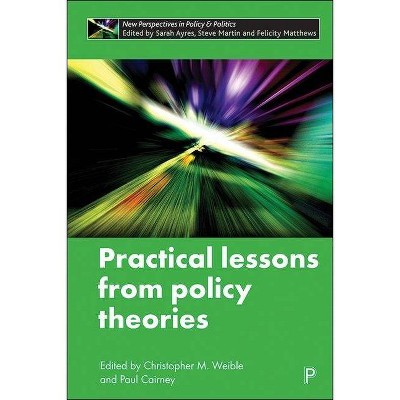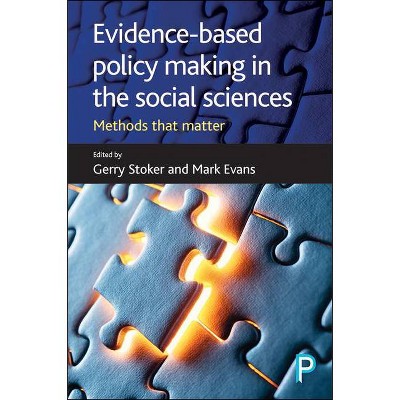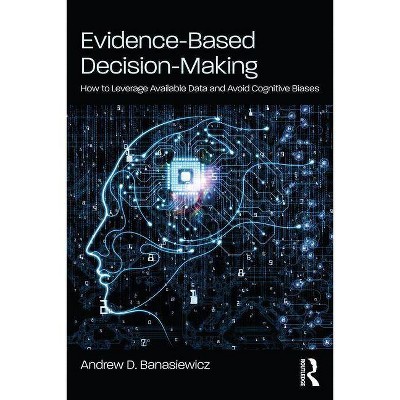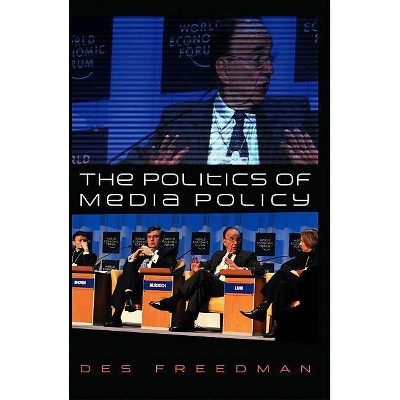The Politics of Evidence-Based Policy Making - by Paul Cairney (Hardcover)
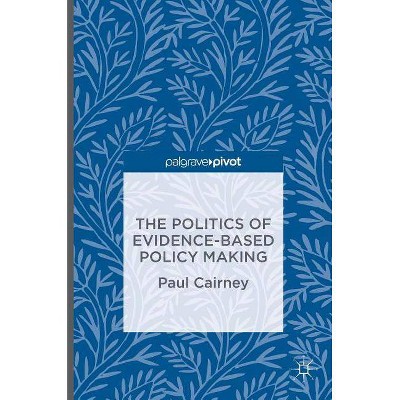
Similar Products
Products of same category from the store
AllProduct info
<p/><br></br><p><b> Book Synopsis </b></p></br></br><p><i>The Politics of Evidence Based Policymaking</i><i> </i>identifies how to work with policymakers to maximize the use of scientific evidence. Policymakers cannot consider all evidence relevant to policy problems. They use two shortcuts: 'rational' ways to gather enough evidence, and 'irrational' decision-making, drawing on emotions, beliefs, and habits. Most scientific studies focus on the former. They identify uncertainty when policymakers have incomplete evidence, and try to solve it by improving the supply of information. They do not respond to ambiguity, or the potential for policymakers to understand problems in very different ways. A good strategy requires advocates to be persuasive: forming coalitions with like-minded actors, and accompanying evidence with simple stories to exploit the emotional or ideological biases of policymakers. </p><p/><br></br><p><b> From the Back Cover </b></p></br></br><p>'This is essential reading for anyone interested in how evidence and policy interact in the real world. Paul Cairney plots an entertaining course outlining the main debates of the evidence-based policy movement, drawing on up-to-date research and fascinating case studies to show what can realistically be expected of science, and of policy. Full of succinct overviews of theoretical and empirical research, this is where I'll be sending students and colleagues for an informative read.'- Dr Kathryn Oliver, <b> </b>University of Oxford, UK</p> 'How can policymaking make best use of evidence? We expect policymakers to follow a transparent and systematic process, and scientists to understand that actors use evidence selectively in a politically heated debate. Cairney helps us appreciate these challenges, explaining how policymakers understand and use evidence, and inviting scientists to reflect on how they can be effective in that context.'- Professor Brian Head FASSA, The University of Queensland, Australia<p></p><p> 'If you're interested in evidence-based policy making (EBPM) then this is a must read. In this persuasive and highly readable book, Paul Cairney draws insights from policy theory to articulate a pragmatic view of EBPM, where scientific evidence is just one of the resources used by the many actors involved in the political systems which shape policy. He demonstrates why scientists need to adapt to the demands of real world policymaking rather than hanker after an unrealistic (and undesirable) scenario where policymaking is less messy and scientific evidence plays a more decisive role. He provides helpful guidance for scientists on how they can adapt and engage with real world policy making and delivery.'- Professor Sandra Nutley, University of St Andrews, UK </p><p><i>The Politics of Evidence Based Policymaking </i>identifies how to work with policymakers to maximize the use of scientific evidence. Policymakers cannot consider all evidence relevant to policy problems. They use two shortcuts: 'rational' ways to gather enough evidence, and 'irrational' decision-making, drawing on emotions, beliefs, and habits. Most scientific studies focus on the former. They identify uncertainty when policymakers have incomplete evidence, and try to solve it by improving the supply of information. They do not respond to ambiguity, or the potential for policymakers to understand problems in very different ways. A good strategy requires advocates to be persuasive: forming coalitions with like-minded actors, and accompanying evidence with simple stories to exploit the emotional or ideological biases of policymakers.<br/></p><p> Paul Cairney is Professor of Politics and Public Policy, University of Stirling. His research interests are in comparative public policy, including: comparisons of policy theories (<i>Understanding Public Policy</i>, 2012); outcomes in different countries (<i>Global Tobacco Control</i>, 2012), and UK and devolved policymaking (<i>Scottish Politics</i>, 2013). </p><p/><br></br><p><b> Review Quotes </b></p></br></br><br><p>"Paul Cairney's book is timely, given recent lamentations about the 'post-factual' era, and fears that despite trends for 'evidence-based policies' on 'what works', policymakers seem to base decisions on anything but science. ... Thoroughly referenced throughout, this book will prove instructive for social researchers hoping to influence policymaking, as well as for social policy and social research students." (Berni Graham, SRA Research Matters, March, 2017)</p>"Cairney carefully and deliberately dispels many EBPM myths. He notes a series of problems which challenge a 'pure' form of EBPM. ... This book is handy for those trying to influence EBPM as it lays out strategies and analytical frameworks to understand the policy making process." (Nicola Searle, The IPKat, ipkitten.blogspot.de, May, 2016)<p></p><br><p/><br></br><p><b> About the Author </b></p></br></br><p>Paul Cairney is Professor of Politics and Public Policy, University of Stirling. His research interests are in comparative public policy, including: comparisons of policy theories (<i>Understanding Public Policy</i>, 2012); outcomes in different countries (<i>Global Tobacco Control</i>, 2012), and UK and devolved policymaking (<i>Scottish Politics</i>, 2013).</p> <br/>
Price History
Price Archive shows prices from various stores, lets you see history and find the cheapest. There is no actual sale on the website. For all support, inquiry and suggestion messages communication@pricearchive.us
